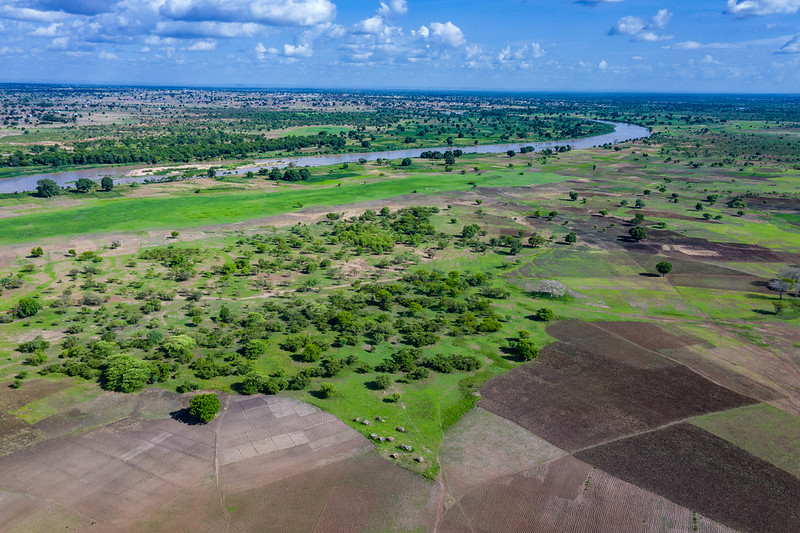By Mathurin Zida

Stakeholder groups from the Western Wildlife Corridor (WWC) have agreed on the following shared vision for the WWC: “A resilient and multifunctional landscape sustaining diversified livelihoods, biodiversity, and green value chains through inclusive and equitable governance”. The vision emerged from a stakeholder workshop including members of the COLANDS Ghana team in September 2022 to develop a theory of change (ToC).
There, they defined three main outcomes and how to achieve these as part of their shared vision:
- strengthened environmental governance system
- increased adoption of environmentally friendly agricultural practices
- resilient and multifunctional landscapes.
The COLANDS team also organized a workshop in November 2022 to begin co-designing, with relevant stakeholders, a community-based citizen science programme for monitoring biodiversity at the level of Community-based Resource Management Areas (CREMA).
Participating stakeholders committed to collaborate in this initiative, and follow-up discussions were held specifically with ORGIIS (Organisation for Indigenous Initiatives and sustainability) Ghana, which is planning a training on monitoring tools intended for CREMA monitoring unit members.
ORGIIS Ghana and A Rocha Ghana have stated that documenting traditional ecological knowledge (TEK) is a relevant component to include in the community-based biodiversity monitoring programmes that they support. COLANDS will also support the process in developing a biodiversity monitoring protocol focusing on TEK; then, will contribute to training the CREMAs’ monitoring units on implementing this protocol.
Biodiversity and folk classification
As part of the biodiversity component of COLANDS, implemented in partnership with Ghana’s University for Development Studies (UDS), the Ghana team has initiated an updating of the LOA with UDS to include participatory landscape mapping and folk classification of the ecosystems and land uses using drones. In November 2022, COLANDS organized a joint field survey with COLANDS colleague Yves Laumonier and the UDS team to target CREMAs for biodiversity component activities.
This allowed the COLANDS team to harmonize understanding of key features of the landscape, identify spots for permanent plots and birds’ surveys, and engage community leaders for boundary estimation of landmarks in order to prepare participatory mapping in the following communities: Kwapun (in SKGK CREMA), Kunyisa (in Builsa Yenning CREMA), and Zukpeni (in MWK CREMA).
The COLANDS team in Ghana also identified add-on MSc research works that are relevant to understanding and addressing key biodiversity-related issues in the CREMAs:
- typology of shea tree stands in agrosystems and other land-use types, based on biophysical parameters (tree height, tree diameter, canopy density)
- evaluation of the impact of the modified taunja system (MTS) in the core zones of CREMAs
- impact of large-scale commercial farming on the CREMAs.
COLANDS has been following up with the UDS team on implementation of the next field work activities of the biodiversity component.
Meanwhile, discussions continue on the design and implementation of a capacity gap assessment of CREMAs within the WWC, as well as the COLANDS gender study in Ghana. Preparations also continue with PhD candidate Alida O’Connor to align her field work with COLANDS research ongoing or completed in Ghana.
Looking ahead:
As part of the multistakeholder platform (MSP) process, COLANDS in Ghana plans to organize a validation workshop of the ToC of the WWC, tentatively scheduled in March 2023. Participants will address the issue of transferring the facilitating role of the MSPs to the local actors themselves to ensure local ownership of the process. From initial discussions, UDS is keen to take this role, but this is yet to be confirmed by all stakeholders.




